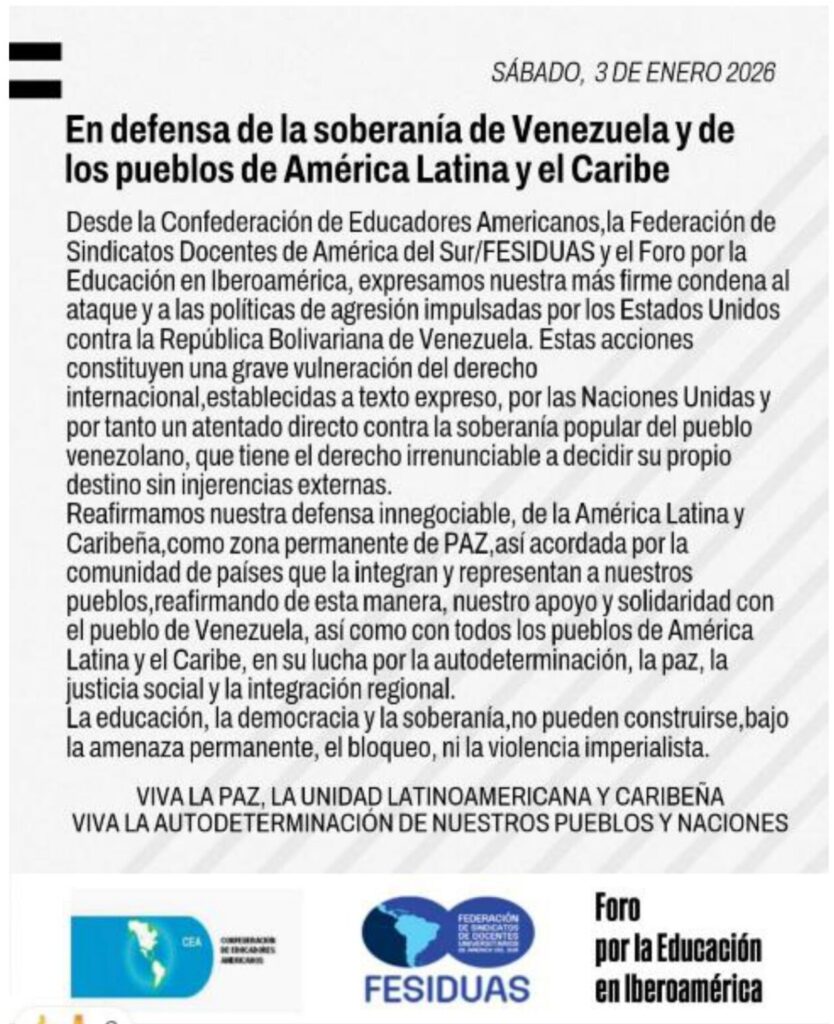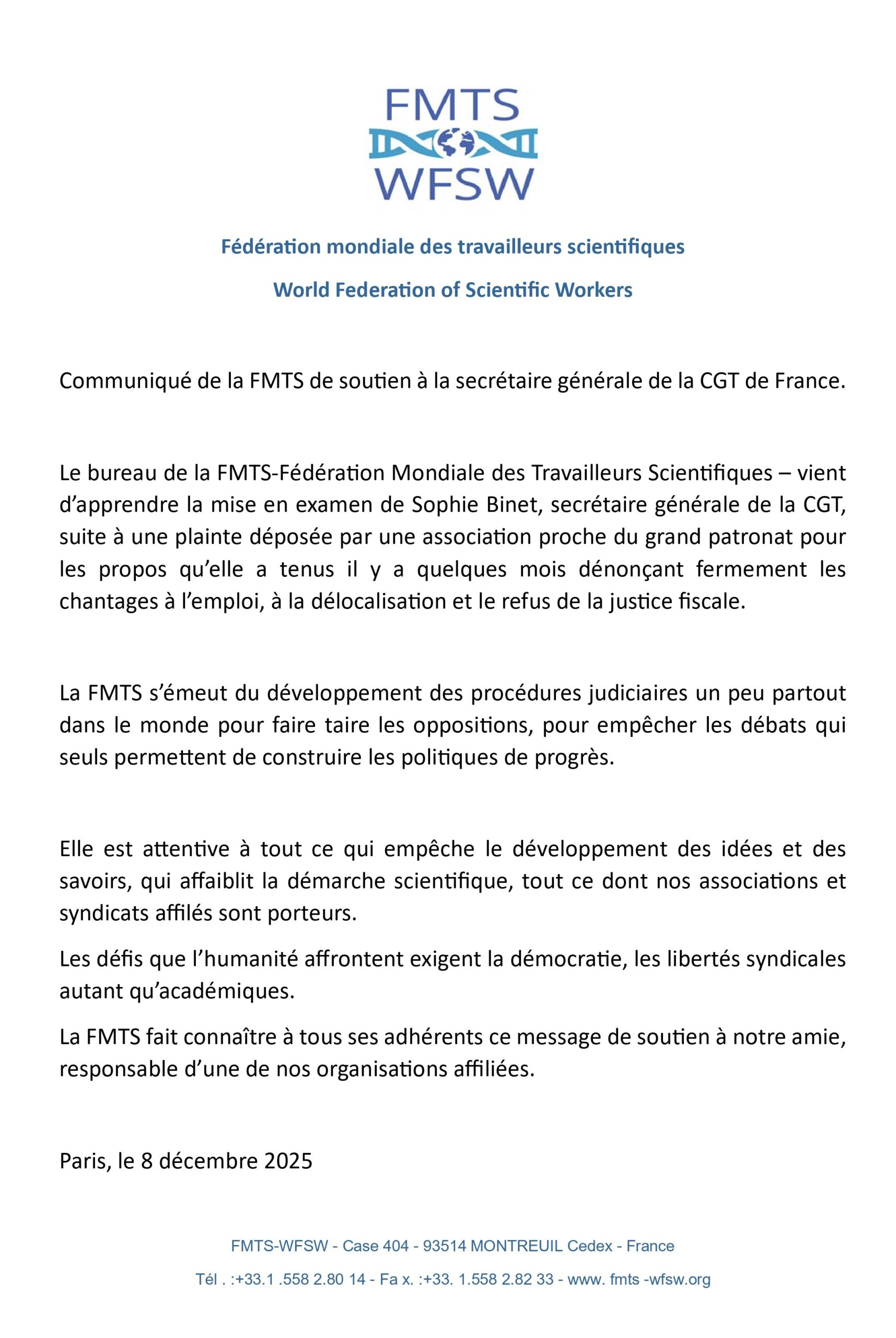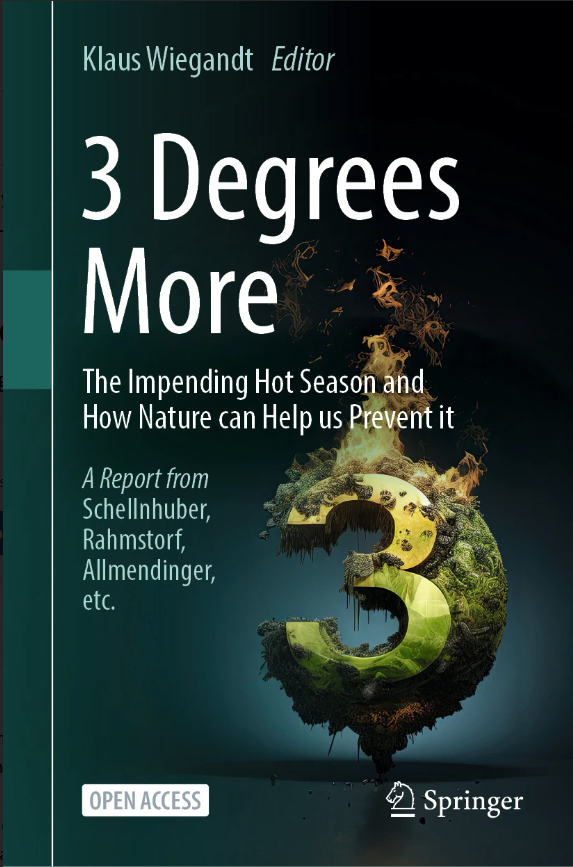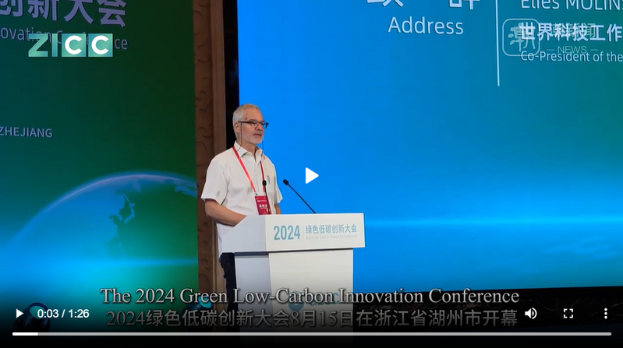Science, to know and gone
No debate of national level, European or world does not escape from the question from the direction: « scientific research, why? « .
Whereas extraordinary advanced scientists and technical are born, the younger generations are diverted scientific careers.
The poor countries are kept away of the development, especially in the spheres of education and science, and see fleeing their brains at the same time as are devalued the traditional knowledge.
The citizens are wary of science and often, the doubt, even the irrational rejection, are opposed to the most advanced techniques.
One comes from there to wonder about the direction of the word ’ progrès’!
The scientific workers are not machines to be produced, nor of the machines to apply scientific knowledge. Tirelessly, the FMTS acts so that they take part in these debates which concern all the citizens. Choices of company with very long range are concerned. These choices are integral part of a truly durable development.
For that purpose, there is a way to traverse together: scientists, but also decision makers, financeurs, consumers. The scientists have the particular responsibility to contribute the share of their knowledge and their experiment specific to this step which the need makes inevitable to ensure a future Humanity on a Earth with the limited resources.
The Conference lays the stress on the relationship between science and market from the point of view of their impact in field-key like the access to water, production of food and drugs, but also from the point of view of the working conditions of the professionals of the research and that of the operation of the infrastructures of researchdevelopment.
Professional dimension and social dimension meet and interpenetrate. It is difficult, sometimes dangerous, for a scientist to give an opinion apart from his professional field. It is important to discuss it, by holding account of the tendencies which appear in the world, initially in the areas of concentration of the scientific and technological potential.
Scientific and technological potential of large countries of Asia such as China, India and Japan, develops in a constant way In the United States, the public effort of research increased appreciably in the recent years and continues to increase. In Europe, start the construction of a European Space of research (ERA), while the 6th research European Outline programme of and development marks a turning compared to the precedents and causes a trend of opinion for the creation of the European Council of research, directed towards the financing of fundamental research.
It is Lisbon – city where the creation of the ERA at the European Top of March 2000 was decided – which the FMTS chose like place of appointment for all those and all those which are intéressé(e)s by this great debate of topicality.





